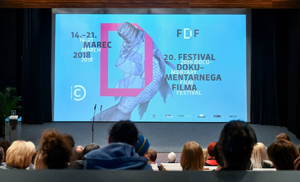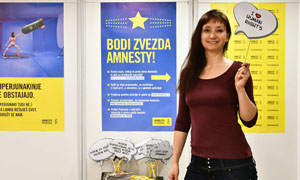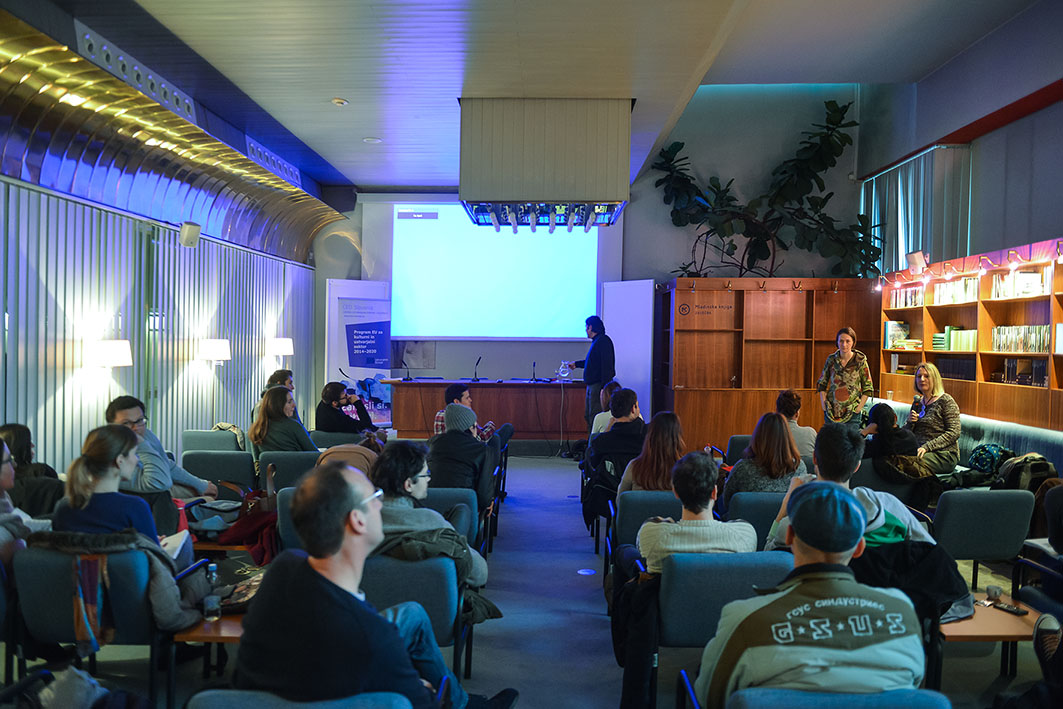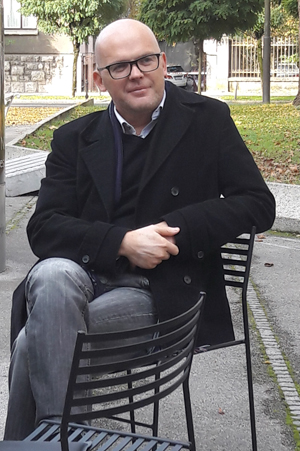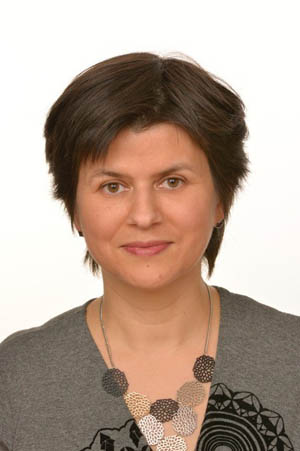|
Award-winners of this year's Documentary Film Festival
Winner of the Amnesty International Award for Best Human Rights Film is: Of Fathers and Sons
|
International jury for Best Human Rights Film presented by Amnesty International Slovenia
|
The World Can Be a Beautiful Place
|
|
Simon PopekCD Film Programme Director |
The World Can Be a Beautiful PlaceIt was a day before attending to the task of writing this foreword that I watched a TV coverage of the spectacular Falcon Heavy rocket launch, featuring a bizarre detail; on board of the rocket … a private car left the planet, courtesy of an eccentric millionaire. Is this a reflection of the twenty-first-century reality, the culture of excesses, media pomposity, FB likes? Undoubtedly. Although enjoying the spectacle of the launch – a demonstration of a new era of space ‘research,’ I could not shake off the feeling that the show trivialises a meaningful, extravagantly expensive and scientific – at least on paper – advancement. Forty years ago, two golden records were included aboard spacecrafts Voyager I and II, time capsules that contained selected materials illustrating the greatest achievements of mankind. It was an attempt at communication with any intelligent extra-terrestrial life form. Today we find that things are being approached with a larger-than-life mentality. And if we attempt to trace a common thread linking the movies selected for the Documentary Film Festival, then it’s their larger-than-life characters and a critical or nostalgic/melancholy attitude to the past that is their shared trait. The Farthest addresses the twin Voyager space probes, possibly humankind's greatest achievement, and the difference between space programs fifty years ago and today; The Dead Nation is a harrowing depiction of the Romanian Holocaust, which links Radu Jude’s documentary to Poland’s highly relevant bill that seeks to ban any mention of the Polish nation's role in the crimes of the Holocaust; The Other Side of Everything tells the story about a bourgeois apartment in Belgrade that has witnessed all totalitarian regimes since WWII; West of the Jordan River documents the changes in the relations between Israel and Palestine from early 1980s until the present; In the Intense Now deals with the revolutionary movements in late 1960s, culminating in the 1968 Prague Spring and May student occupation protests in France. Though the above films feature some larger-than-life protagonists, e.g. the leader of Parisian students, Daniel Cohn-Bendit or ‘Red Danny,’ they seem small fry in comparison to characters from the larger-than-life category, for example Colonel Fahir from The Deminer, the manipulative actor in Stranger in Paradise who alternates between three ideological incarnations in a controversial role play about the refugee crisis, the technological gurus from the Silicon Valley in The Cleaners, or the uncompromising coach and selector of the Russian gymnastic team from Over the Limit. And then there are filmmakers who make documentaries about ordinary people or ‘dead time,’ for example the unique Latvian Laila Pakalnina, who chronicles the most banal trivialities that life has to offer to capture emotions or provide a tellingly relevant commentary. Or Frederick Wiseman, one of DFF’s longest-standing featured artists (programmed practically every year), whose Ex Libris, taking the audience behind the scenes of the New York Public Library, strikes you as being a silent protest against vulgarisation of public discourse, against snap judgements and educational inequalities resulting from social stratification. In other words, it’s a portrait of America that’s become unrecognisable in the blown-up media ‘culture’. The US that is solidary, tolerant, cultured, mentally and emotionally articulate is still there, it’s only been concealed from us, Wiseman has us read between the lines, similarly to Conversation Studio, where people from all social classes, be it lawyers or workers, doctors or refugees, meet on a weekly basis in the Centre Pompidou to practise their French with equal rhetorical skill. The world can be a beautiful place, you just need to switch off the TV – and give a documentary film a chance. |
|
|
Fighting for Goodwill in the World – for Everyone
Recently we have been visited by Suzana Dewa. The very one who 30 years ago set up Amnesty Slovenia, the first "branch" in Eastern Europe. She was 16. When asked what possessed her to set up Amnesty, she had this to say, "I have always been interested in human rights and social justice. I learned about them through books, such as 'Uncle Tom's Cabin' and 'Flowers of Hiroshima', while movies introduced me to issues such as racism and prison system in the USA. When I found out about Band Aid and crisis in Africa in 1984, I wholeheartedly threw myself into that campaign. Once that was finished, I decided to write to various international organizations to ask what I could do to help. Amnesty was the one that replied and they started sending materials regularly. In 1988, when the Trial Against the Four happened and human rights took centre stage in Slovenia, it became clear that the time was ripe to set up Amnesty Slovenia." Bill Shipsey, a member of the jury, otherwise the founder of Art for Amnesty, our programme for promotion of human rights through arts, shares a similar “get-to-know-Amnesty” story. When working in and travelling the US during his studies, he joined his first protest against death penalty outside a prison in California, where Joan Baez and her sister Mimi Farima preformed Dylan’s I Shall Be Released: “This may be the earliest time that I realised that art and artists – musicians and writers – were the natural allies of the human rights movement since art expresses the highest qualities that we as humans can create or experience.” We are happy and grateful we have so many allies, friends, and supporters, both globally and nationally, in our fight for a fairer world. In all types and forms of art. This festival and its (co)creators are our dear friends, as well. Every year, the selected documentaries show us new perspectives on important issues and reveal life stories, often tragic, but always real. The jury always kindly accepts the challenge to choose the most convincing one. Which usually is not an easy job, but we are sure that also this year they (besides Bill Shipsey also an actress and journalist Ula Furlan and a film director and producer Dejan Babosek) will select the right one. And, ultimately, you – the festival cinemagoers who come and watch the films and thus help spread the voice about burning issues and human rights. 2018 is a year of anniversaries – 70 years ago the Universal Declaration of Human Rights was proclaimed, Amnesty Slovenia will be 30, and this is the 20th edition of the Festival. Let’s make these anniversaries not only an opportunity to celebrate and look back at past victories, but an opportunity and momentum for future successes. At first sight it may seem that we live in an evil and horrible time. This should not mislead us into a feeling that it cannot get better. This is why it is up to all of us to unite and fight for a better tomorrow. You do not have to start an organisation, you can for instance simply sign a petition (hint: there is always at least one available at www.amnesty.si). It is up to us not only to give good wishes but also fight for goodwill in the world. For everyone. |
